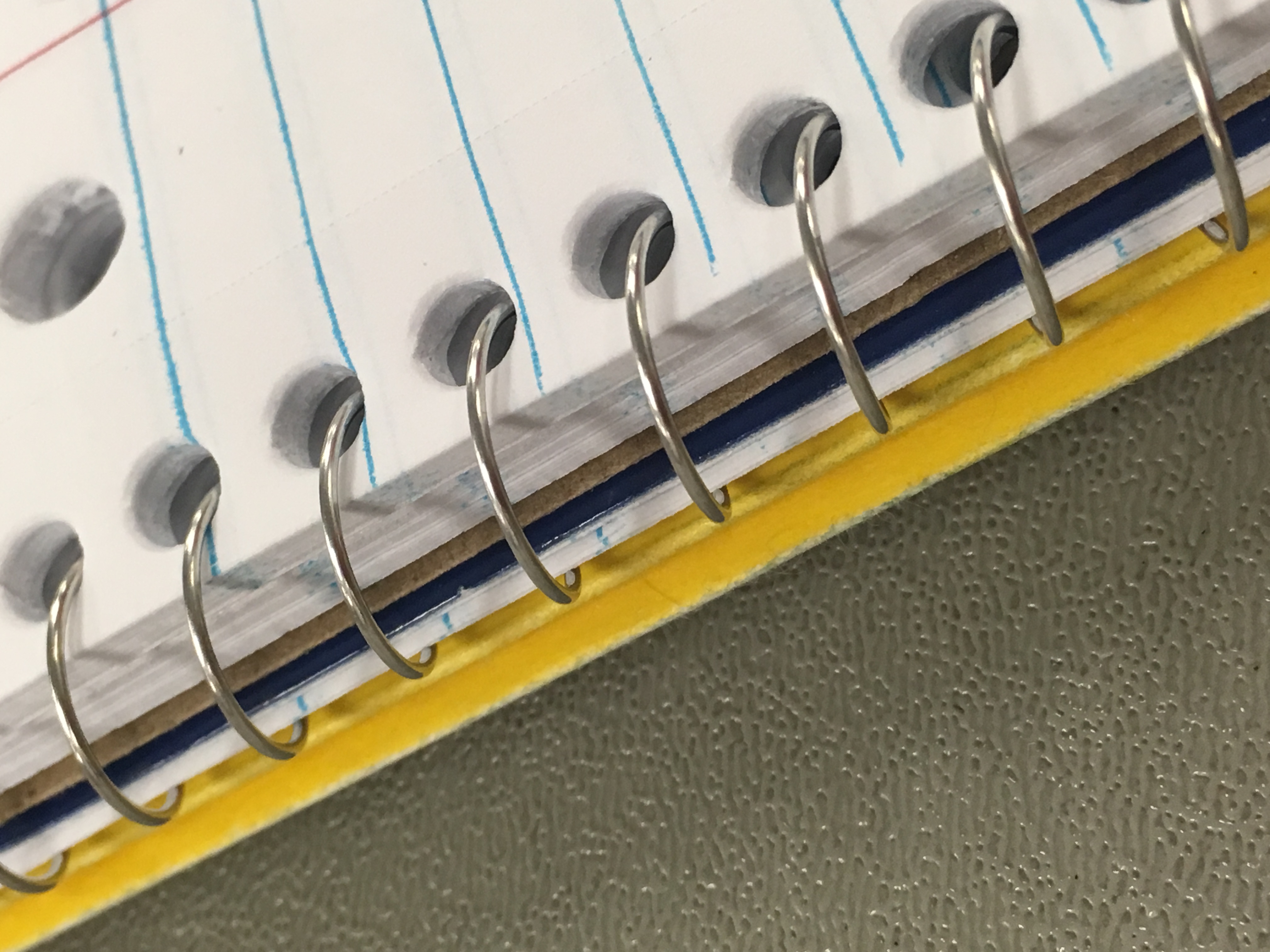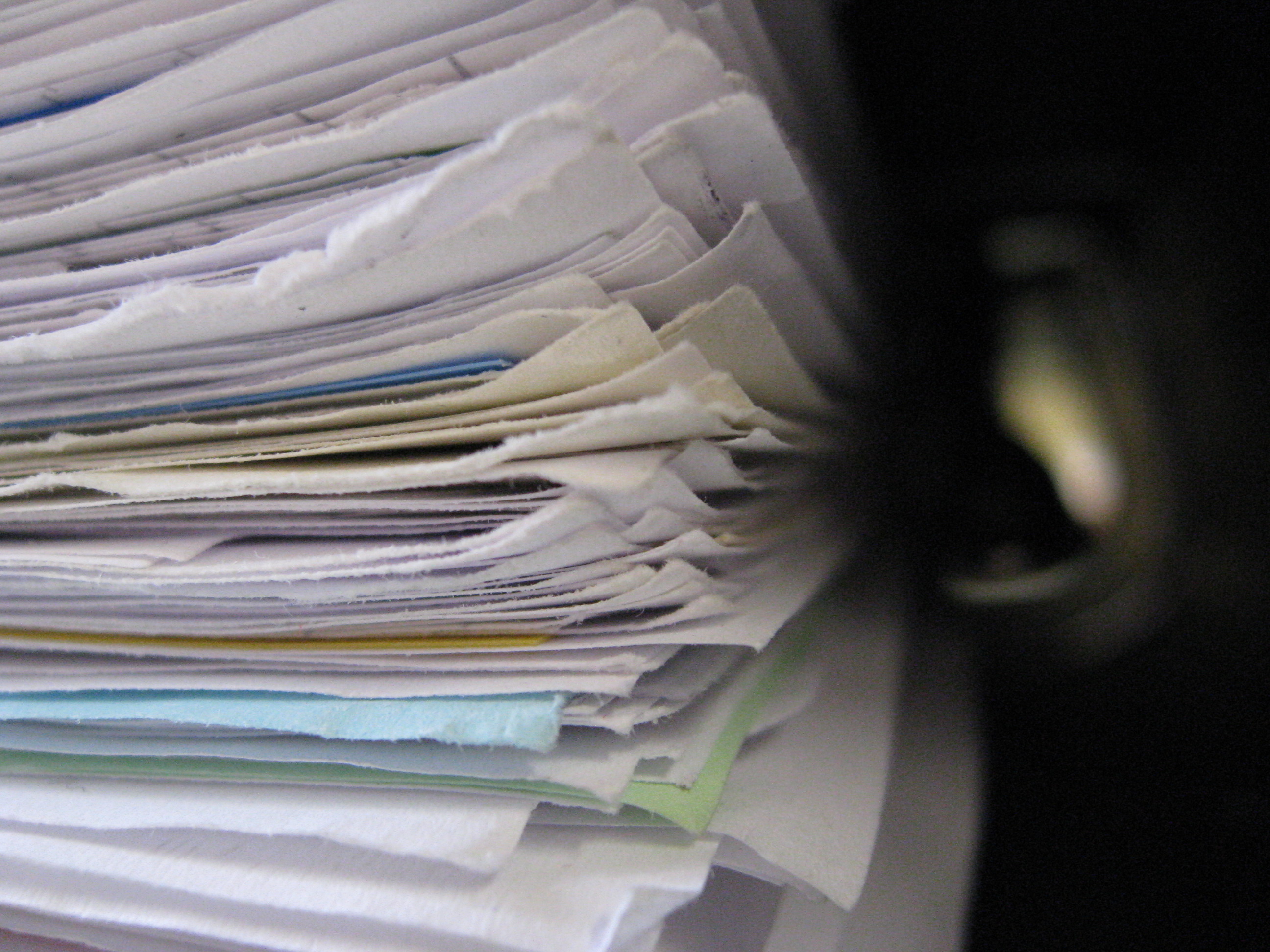I genuinely enjoy writing so finding motivation to write is easy. I want to do it. Actually doing the work though, that's hard.
Getting started and putting words down on paper without getting distracted or discouraged or otherwise sabotaging myself should be simple, but it's not. Still, it's necessary. The key part of writing that makes it writing is moving the words out of your head and onto the page. After all, if you want something concrete that you can send out into the world you have to actually write it down.
My main issue is staying focused once I start and not spinning off into the weeds. I can just sit down and start writing because I make a point to deal with or avoid things I know are distractions. These are things I've noticed over the years that draw my focus away from the work and get in the way of me actually writing like:
Electronics
This is the biggest one but the easiest to deal with. Having electronics around means there's an entire internet of things to grab and split my attention. So to get rid of that my phone, tablets, computer, anything with a screen gets put away while I'm writing. I don't check them or acknowledge they exist unless there's an emergency. My attention is on the paper and ideas, everything else can wait until I'm done. (At least that's the goal. I don't always succeed.)
Rituals
I used to think writing was a special state that I needed to prepare for by doing a bunch of little rituals to get in the right frame of mind. To write I absolutely had to make tea first, or light some incense, put on music, all this elaborate setup that just wasted time and kept me from actually starting to write. I realized it was getting in the way, so I don't do it anymore. All I need to write is paper, a pen, and my brain. (I do still make tea, but because I like it not because it's a requirement.)
Stuff
Shopping for office supplies is a great distraction. I have physical materials that I prefer working with but I don't need any specific product in order to write. Any paper and writing utensil will do in a pinch. The idea that buying more stuff will make you more organized or productive or motivate you to write is insidious and bullshit, but I regularly find myself shopping for writing supplies instead of writing. The knowledge that I really will eventually use everything I buy doesn't help. The best thing I've found to counter distraction shopping is to go over the stock of office supplies I already have and berate myself to stop looking at notebooks and fill one instead. (It usually works.)
Too many ideas
I have a lot of things on my to-write list. Usually I only work on one at a time and finish them in a FIFO order, but sometimes I run into a deadlock trying to decide what to work on. Most often it's because I get too wrapped up in trying to judge what's the "best" choice based on which is closest to being done, what I'm most interested in right then, or which would be most useful to folks when I should really just pick one and get started. Once I notice what's happening I handle it by forcing myself to make a choice. I'll either pick the smallest thing that's easiest to finish just to get something done, or make a poll with my top three and let other folks decide, or put all the options on a list and roll a die. Sometimes I'll accept the result as-is, but formally asking the question at all is usually enough to crystallize a decision and push me to get off my ass and do the work. (The dice haven't failed me yet.)
Worrying about perfection
I have high standards for my work and I'm very good at procrastinating under the guise of doing something superficially useful. It leads me to doing things like stalling out because I'm trying to find the perfect word instead of just writing something and refining it later, or wasting time on researching minor details that I could confirm and correct after I've got the basics written down. It's a trap of feeling like I'm doing work that keeps me from actually accomplishing anything significant. I avoid it by being aware that the potential for self-sabotage exists, paying attention so I don't do it, and remembering that I'm writing a draft. It won't be perfect and perfection is an unrealistic expectation. There will be refining steps later, but I can't refine what hasn't been written. (This one actually works great. Don't strive for perfection, it's not real.)
Distractions still pop up even though I know what they are and take steps to minimize them. It's something I have to work around and in spite of, mostly by just putting my head down and willfully focusing on writing. It only works because I want to do the work and get shit done.
The other thing I've had to learn to deal with is writer's block. As much as I love writing there are times when I just can't. When I run up against writer's block the first thing I do is try to tell if it actually is writer's block and not just a focus problem. To do that I run through a list checking my thoughts, feelings, and actions against the things I already know I have issues with to see if anything lines up.
If I'm:
- Excited about the project but nervous or doubting myself
- Going off on mental tangents, excessively checking resources, or looking at screens
- Overly worried about perfection
Then I know it's just distraction. In that case I deal with whatever's causing the distraction and take a short break to clear my head. Five to ten minutes where I get up, move around, and don't think about words in order to do a minor mental refresh. Physically moving around is key. Stretching, looking at something else (even if it's just another room or out the window), and doing something after I've been sitting still for a while is the best way I've found to unstick my brain and refocus. After I've shaken off the funk I'll come back and keep writing.
If I'm:
- Feeling tired, bored with the project, and generally not enjoying myself
- Out of ideas, brain's completely blank
- Really doubting myself, like "this is all shit and I don't know how to fix it or if it can be saved at all"
Then it's writer's block and I need to step away for a while.
To deal with writer's block I leave and do something else. I don't force myself to try and keep writing in that condition because whatever I create then won't be up to my standards and will only make me feel more discouraged, which feeds into the block and makes it harder to start again later. At that point I'm just wasting time and making myself miserable in the process. So instead I shift away from writing to literally anything else. Accept that I've temporarily run out of steam and step away to give myself some room to breathe without a consuming focus on the problem. That lets me avoid getting so discouraged with a project that I shelve it indefinitely. Putting the work down is fine as long as I eventually come back to pick it up again.
The important thing when I take these breaks is making sure I actually take the break. The point of temporarily letting go is to be able to focus on other things, take in more ideas, and hopefully refill the inspiration tanks. That means I have to actually let go and banish the problem project from my head for a while. If I try to relax with the specific intention of recharging in order to work on The Thing later that just delays the stress instead of abating it. I need to genuinely move on to a different project and if it knocks something loose regarding the other thing, that's serendipity.
I'm rarely on a deadline so whatever's troubling me can wait until I'm rested and ready to tackle it again. There are lots of projects that I'm glad I paused because they're unquestionably better for having given myself a chance to collect more ideas and come back with fresh eyes. I'd rather have a project rest for months and be something I'm proud of than rush to release something that's just okay. Everything gets there eventually, it just takes patience and effort.



.jpg)